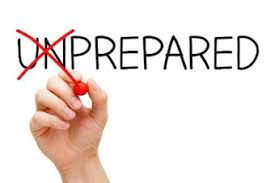 You’ve finished! You did it. Take a minute to relish your recent accomplishments. The plethora of assignments that were due, the countless hours of caffeine consumption and the endurance behind the late-night study sessions – done and dusted. Freedom is officially a badge you can proudly flaunt for the next three months (unless you are set on graduating this year and if so congratulations!). With the tide of stress beginning to recede a huge sigh of relief is in order for those who have battled exam season and come out intact.
You’ve finished! You did it. Take a minute to relish your recent accomplishments. The plethora of assignments that were due, the countless hours of caffeine consumption and the endurance behind the late-night study sessions – done and dusted. Freedom is officially a badge you can proudly flaunt for the next three months (unless you are set on graduating this year and if so congratulations!). With the tide of stress beginning to recede a huge sigh of relief is in order for those who have battled exam season and come out intact.
With the cessation of university exams and copious deadlines for students at the University of Kent, all of us (including myself) can begin to savor and enjoy the surprisingly great UK weather without experiencing pangs of study-related stress riddled guilt. Summer slumps for a lot of us are inevitable and unless you have the whole summer that is booked to capacity with endless activities or a full time job/internship, here are a couple of ways to productively utilize your free time in ways that can be both lucrative for your professional development and relaxing. There’s a lot you can do that takes little time, a bit of effort, but will catapult far during the academic year.
Catch up on Your Sleep – Rest and relax because summer is not eternal
Catch up on the hobbies that you’ve abandoned for the last six months. Sports, popular and classic reads, playing the keyboard that got shoved behind your bedroom door at home and busting out some good tunes. Invest in your mental health and reconnect with your favourite pastimes that you had little time to indulge in during the academic year. With sleeping patterns that (for a lot of us) are abysmal, it’s a great time to reset our sleeping schedules and hopefully retire the eyebags off our faces and back into the closet.
Volunteering – Get outside and engage
The wonder of Netflix is unbeknownst to very few of us during the summer time. It’s almost too easy to make a home for yourself on the couch with the likes of endless hours of Friends/The Office/Game of Thrones to keep our minds “occupied”. Instead get involved with your community and volunteer for local charities and organisations. Allow your passion for a cause or something that you’re passionate about to steer the direction in which you go when seeking out volunteering opportunities.
Expand your knowledge
“Wisdom is not a product of schooling but of the lifelong attempt to acquire it.”
An easy yet productive way to acquire new knowledge about common current topics are through educational talks and podcasts. It’s not only a great way to open your mind to novel information but can allow you to view certain topics from a different perspective. One of the many things that I have learnt as a third-level education student is that the overall learning journey encompasses much more than what you will study in the four walls of an archaic university building with a projector and a couple PowerPoint slides. The journey of acquiring knowledge is one that will continue beyond your university years and this will supplement your frame of thought with novel perspectives on how you view the world around you.
From the world of finance to perhaps understanding the growth of nanotechnology in science to understanding attributes in leadership – there’s a ton you can learn from just the swipe of a finger or perhaps calling out to Alexa.
Create your vision board for the upcoming academic year
 Amidst the glee of having a schedule that you have complete control of in the summer time, be mindful of the fact that like all things, summer will come to an unfortunate end. The commencement of a fresh academic year is one that can be approached with a fresh and well-prepared outlook. Take the time to reflect over how the academic year has transpired for you.
Amidst the glee of having a schedule that you have complete control of in the summer time, be mindful of the fact that like all things, summer will come to an unfortunate end. The commencement of a fresh academic year is one that can be approached with a fresh and well-prepared outlook. Take the time to reflect over how the academic year has transpired for you.
- What were some of my most challenging moments this year?
- What things got in the way of my progress this year?
- Do I understand why I made certain mistakes and what are the possible new behaviors I can adopt to enable me from falling into the same pitfalls for next year?
- What is the most important thing I learned about myself?
- What were my proudest moments this academic year?
A takeaway point to remember is to understand that what you consider a failure isn’t really one. I tend to not look at circumstances as failures because the connotation that seems linger around the word “failure” can tend to sound defeatist and dispirited. It’s either a lasting moment or a lesson learned.
It’s questions such as these that permit the essential process of self-reflection and self-evaluation. Nothing really is a failure but rather a lasting moment or a lesson learned. Which ultimately are great stepping stones for when you finally approach the task of making smart, specific goals. When setting out a plan of the goals you are aspiring to achieve for the next academic year and ensure that you are specific with your goals! Goals such as “I want to improve my grades” are vague and ambiguous and consequently the inclination for you to attempt to change your behaviour patterns and habits to attain such goals is slim to none. Instead a goal such as “I would like to be more disciplined with making notes after lectures as well as to overcome procrastination in my studies” is specific and targets exactly what you want to achieve.
Internships/Placements Preparation
 As a pharmacy student, I know firsthand how aggravating it can be to come across great placements but being disappointed because you’ve missed the unusually early submission application dates were. A lot of internships/placements that are available for pharmacy students (and most students) have early submission deadlines – a lot of which will conveniently coincide with the busy periods before exam season. It can be helpful to invest time during the summer to sit down and thoroughly research the work experience opportunities pertinent to your imminent career prospects throughout the academic year. Make a note of some internships that catch your eye, record each individual submission date and the written pieces that are required to be considered for eligibility. Ultimately preparation is key and the great thing about planning in the summer is that time is not your enemy! You have the opportunity to really ascertain which areas of work experience will be not only beneficial for your degree and professional development but will also be conducive to learning style.
As a pharmacy student, I know firsthand how aggravating it can be to come across great placements but being disappointed because you’ve missed the unusually early submission application dates were. A lot of internships/placements that are available for pharmacy students (and most students) have early submission deadlines – a lot of which will conveniently coincide with the busy periods before exam season. It can be helpful to invest time during the summer to sit down and thoroughly research the work experience opportunities pertinent to your imminent career prospects throughout the academic year. Make a note of some internships that catch your eye, record each individual submission date and the written pieces that are required to be considered for eligibility. Ultimately preparation is key and the great thing about planning in the summer is that time is not your enemy! You have the opportunity to really ascertain which areas of work experience will be not only beneficial for your degree and professional development but will also be conducive to learning style.
Keep your eye on the books
“Organize, don’t agonize.” ― Nancy Pelosi
Before you roll your eyes at this particular point, as dull and tedious as this tip may seem, small sessions of quick revision can keep your brain somewhat cognisant of the topics you’ve covered. Whether this is early reading or equally just as helpful, revising over topics you’ve covered this is a great way to refresh your memory and keep you up-to-date on your work. Sound like too much? A simple yet smart tip is to organise your notes from the past academic year. Dig out the binders/folders that have been tossed under the bed and out of sight and collate a neatly filed collection of your notes, returned and graded coursework papers, seminar and workshop materials placing each in separate categories. The benefits of this mean that when the time draws near for you to refer back to a previous year’s material, you’ve got a nicely laid out collation ready and waiting. Another tip would be to download and print out the course guides for the upcoming semesters, highlight the key aspects and store on file.
Summer is the best time to relax, kick off your shoes and just relax but you can fit in some great little tasks that can propel you forward to hit the ground running when uni starts.
Good luck guys!
